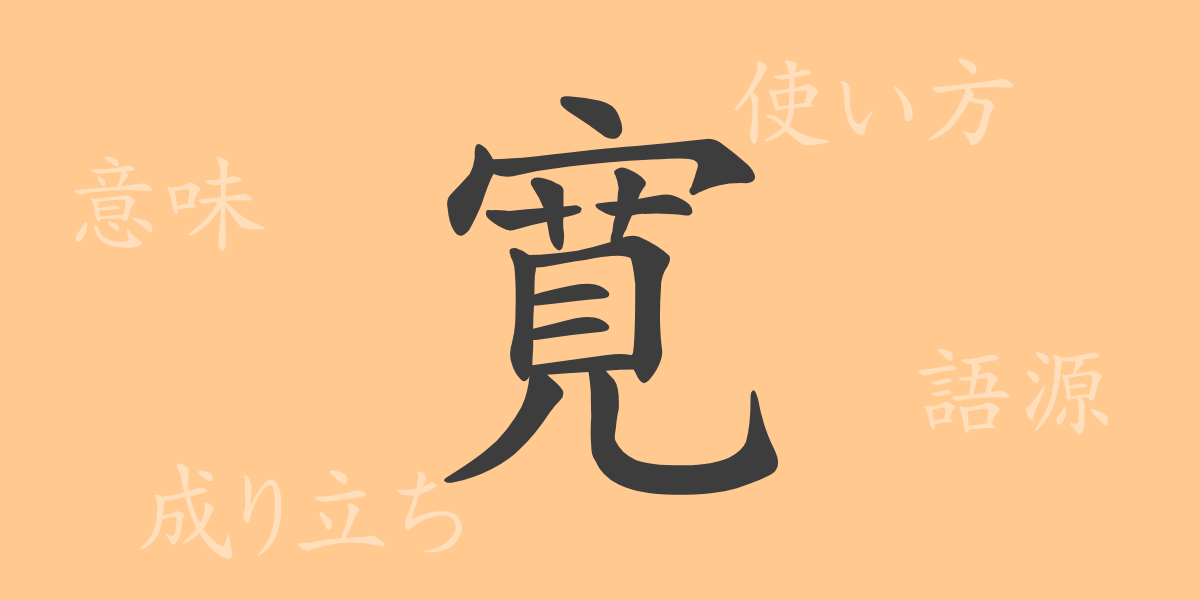The meaning imbued in a single Kanji character is deeply understood through its shape and history. The commonly used Japanese Kanji “寛” (Kan) is no exception. This article will unravel the origins, meaning, usage, reading, and even phrases and proverbs that use the character “寛” (Kan). By exploring the culture and philosophy behind the character, we invite you to a richer world of language.
The Origin (Etymology) of 寛
The Kanji “寛” (Kan) originated from ancient Chinese oracle bone script. Its original form depicted a person spreading their arms wide inside a room. This came to represent the expansion of time and space, as well as the breadth of a person’s heart, eventually becoming associated with the concept of “generosity” and evolving over time. With the passage of eras, its shape has changed, leading to the current character “寛” (Kan).
The Meaning and Usage of 寛
“寛” (Kan) conveys the meaning of being spacious or relaxed. It also signifies having a generous heart. In terms of usage, it is often employed as a na-adjective, as in the expression “寛容な態度” (Kanyou- na- taido – a tolerant attitude), or as the verb “寛ぐ” (Kutsuro-gu – to relax, to calm one’s mind), which carries the nuance of relaxing and settling one’s heart.
How to Read 寛, Number of Strokes, and Radical
The Kanji “寛” (Kan) comes with information about its reading and structure.
- Readings: The onyomi (Sino-Japanese reading) is “Kan”, while the kunyomi (native Japanese readings) are “Kutsuro-gu” and “Hiro-i”.
- Number of Strokes: 13 strokes
- Radical: 宀 (うかんむり – Ukanmuri)
Phrases, Idioms, and Proverbs Using 寛 and Their Meanings
There are various phrases, idioms, and proverbs that include the character “寛” (Kan), such as:
- 寛大 ( Kandai): Having a generous heart, easily forgiving others’ mistakes.
- 寛容 ( Kanyou): Having a broad heart, an attitude of accepting various things.
- 寛ぐ ( Kutsuro-gu): To unwind and relax.
- 寛解 ( Kankai): The alleviation of an illness.
Conclusion on 寛
The Kanji “寛” (Kan) expresses the “spaciousness” and “generosity” suggested by its form. This character, used in various ways in the Japanese language, symbolizes important values in human relationships and social life. A tolerant heart implies an attitude of accepting and trying to understand others, and through this character, we can build richer human connections.

























